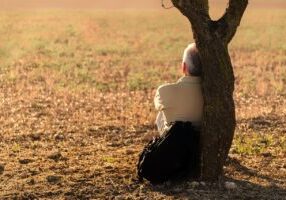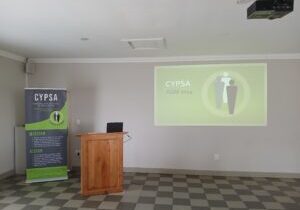Prevention and Combating of Hate Crimes and Hate Speech Bill [B9B – 2018]
RE: Proposed Prevention and Combating of Hate Crimes and Hate Speech Bill [B9B – 2018]
- We refer to the invitation for written submissions on the proposed Prevention and Combating of Hate Crimes and Hate Speech Bill [B9B – 2018], hereinafter “the Bill”.
- Umphakathi Okhathazekile (CYPSA) is a national non-profit and public benefit organisation, focused primarily on youth upliftment and work amongst grassroots communities nationally. We have to date motivated over one million learners nationwide via our awareness campaigns, in addition to many other activities conducted on a national scale.
- As an organisation representing South African youth and grassroots communities in all nine provinces, we oppose the Prevention and Combating of Hate Crimes and Hate Speech Bill [B9B – 2018], for the following reasons:
- We are concerned that the Bill violates the constitutional rights of religious persons to express their religious beliefs without fear of punishment or persecution (section 15, read with section 16). Increasingly, around the world but also in South Africa, various holy scriptures (particularly on contentious issues) are being regarded as “politically incorrect” or “offensive”, allegedly causing emotional and/or social harm.
- We specifically oppose the Bill’s:
- wide definition of “harm” (in Clause 1);
- the failure to define “hatred” (in Clause 1); and
- definition of, and creation of, the crime of “hate speech” (in Clause 4).
- We are concerned that the creation of the crime of “hate speech” for saying or distributing something which could possibly be construed as “harmful”, will have certain unintended consequences, namely the criminalisation of well-meaning people who will be prosecuted for saying what they sincerely believe (according to their holy texts) and will result in them being sent to jail for a period of up to eight years for a first offence.
- “The modern state has expanded its powers to such an extent that today, more than ever, it has become necessary to protect the freedom of the individual. The principle of legality plays an important role in this regard. As it upholds the utility of fixed and certain rules, the principle of legality is at the core of the rule of law doctrine. In its broadest sense, the principle of legality can be described as a mechanism to ensure that the state, its organs and its officials do not consider themselves to be above the law in the exercise of their functions but remain subject to it. In the field of criminal law the principle fulfils the important task of preventing the arbitrary punishment of people by state officials, and of ensuring that the determination of criminal liability and the passing of sentence correspond with clear and existing rules of law.”[1]
- The South African Constitution[2] entrenches the principle of legality. Its preamble states that South Africa is founded on the supremacy of the Constitution[3] and the rule of law.[4] The Bill of Rights, further provides that “every accused person has a right to a fair trial, which includes the right:
- “not to be convicted for an act or omission that was not an offence under either national or international law at the time it was committed or omitted;[5] [and]
- “to the benefit of the least severe of the prescribed punishments if the prescribed punishment for the offence has been changed between the time that the offence was committed and the time of sentencing.”[6]
- In terms of the ius certum principle (the principle of certainty), the crime must not, as formulated, be vague or unclear. The subject must understand exactly what is expected of him. The definition of a crime should be reasonably precise and settled, so that people need not live in fear of breaking the law inadvertently. Although the Constitution does not expressly provide that vague or unclear penal provisions may be struck down, it is “quite possible and even probable,” according to Snyman,[7] that the first provision above will be interpreted in such a way that vaguely defined statutory crimes may be declared null and void. This “void-for-vagueness” rule may be based either on the right to a fair trial in general or on the principle that, if a criminal norm in legislation is vague and uncertain, it cannot be stated that the act or omission in question actually constituted an offence prior to a court’s interpretation of the legislation.
- It is also possible to base the operation of the ius certum provision on section 35(3)(a) of the Constitution,[8] which provides that the right to a fair trial includes the right to be informed of the charge with sufficient detail to answer it. In S v Lavhengwa[9] it was held that the right created in section 35(3)(a)[10] implies that the charge itself must be clear and unambiguous. This, according to the court, would only be the case if the nature of the crime were sufficiently clear and unambiguous to comply with the constitutional right to be sufficiently informed of the charge.
- A definition of the principle of legality, embodying its most important facets, can be formulated as follows:
(i) An accused may not be found guilty of a crime unless the type of conduct with which he is charged:
(a) has been recognised by the law as a crime;
(b) in clear terms;
(c) before the conduct took place;
(d ) without the court having to stretch the meaning of the words and concepts in the definition to bring the particular conduct of the accused within the compass of the definition, and
(ii) After conviction an accused may not be sentenced unless the punishment also complies with the four principles set out immediately above under (i)(a) to (d).[11]
- In S v Makwanyane,[12] which eliminated capital punishment in South Africa, Chaskalson P provided a clearer combination of the other theories of punishment, laying emphasis on deterrence, prevention and retribution.[13] Although recognised as a legitimate object of punishment, retribution should not, according to the court, be given undue weight, given South Africa’s human rights ethos and the role to be played by ubuntu in society; the primary object of punishment should be prevention and rehabilitation, not revenge. The court held that “punishment should fit the criminal as well as the crime, be fair to society, and be blended with a measure of mercy according to the circumstances.”[14]
- The sanctions stipulated in the Bill are therefore excessive, cannot be substantiated in light of the above considerations and therefore cannot be supported.
- Definitions included in the Bill are overly broad and/or vague, which is inconsistent with the principles of ius certum and the Rule of Law.
- There are already sufficient existing laws (the Equality Act[15]) dealing with “hate speech” and the crime created by this bill is unnecessary.
- The offence of hate speech is therefore unnecessary and amounts to a duplication of provisions, as hate speech is already explicitly prohibited by the Equality Act.[16]
- Sufficient civil remedies already exist (fines, formal apologies) and have already been successfully applied in dealing with incidents of this nature.
- The already existing common law crime of crimen injuria has been successfully applied in dealing with recent incidents where reckless and racist remarks were publicly made by individuals.
- In further support of the above we reference Qwelane[17], where a journalist who penned an unpopular opinion in an article, was vindicated after the SCA found that his comments were indeed hurtful, but did not amount to hate speech.
- The SCA overturned a high court ruling that had found Qwelane guilty of hate speech and also dismissed the SA Human Rights Commission complaint against him.
- As a result, the SCA also directed Parliament to rewrite the “vague” and “overbroad” law meant to protect against discrimination which had been applied when finding Qwelane guilty.
- Reacting to the judgment, Qwelane’s attorney, Andrew Boerner, stated that freedom of expression was one of the cornerstones of a strong and vibrant democracy and that, “Without it, or with an unconstitutional limitation of the right, we negate robust conversation and move backwards.”
- It was further stated in reference to Qwelane[18] that “Clarity is key to enable people to exercise their rights and to be afforded protection.”
- For all of the above reasons, we strongly oppose this Bill which we believe to be unconstitutional and unnecessary, and we ask:
- For the scrapping of the “hate speech” sections from the Bill altogether;
Alternatively, should the “hate speech” provisions remain part of the Bill, we ask:
- That Clause 4(2)(d) (the “religious exemption clause”) be strengthened as follows:
“expression of any religious conviction, tenet, belief, teaching, doctrine or writings, by a religious organisation or an individual, in public or in private, to the extent that such expression does not actively support, instigate, exhort, or call for extreme detestation, vilification, enmity, ill-will and malevolence that constitutes incitement to cause gross emotional and psychological harm that severely undermines the dignity of the targeted group, based on race, ethnicity, gender, religion or sexual orientation”.
[1] Snyman CR Criminal Law 7th ed (LexisNexis 2020) 31.
[2] Constitution of the Republic of South Africa, 1996.
[3] Constitution of the Republic of South Africa, 1996.
[4] “What is the rule of law?” https://worldjusticeproject.org/about-us/overview/what-rule-law (date of use: 19 May 2023)
[5] Section 35(3)(l) of the Constitution of the Republic of South Africa, 1996.
[6] Section 35(3)(n) of the Constitution of the Republic of South Africa, 1996.
[7] Snyman CR Criminal Law 5th ed (LexisNexis 2008) 43.
[8] Constitution of the Republic of South Africa, 1996.
[9] S v Lavhengwa 1996 (2) SACR 453 (W).
[10] Section 35(3)(a) of the Constitution of the Republic of South Africa, 1996.
[11] Snyman Criminal Law 31.
[12] S v Makwanyane 1995 (3) SA 391 (CC).
[13] S v Makwanyane 1995 (3) SA 391 (CC) [135].
[14] S v Makwanyane 1995 (3) SA 391 (CC) [862G].
[15] Promotion of Equality and Prevention of Unfair Discrimination Act 4 of 2000.
[16] Promotion of Equality and Prevention of Unfair Discrimination Act 4 of 2000.
[17] Qwelane v South African Human Rights Commission and Another [2021] ZACC 22.
[18] Qwelane v South African Human Rights Commission and Another [2021] ZACC 22.



